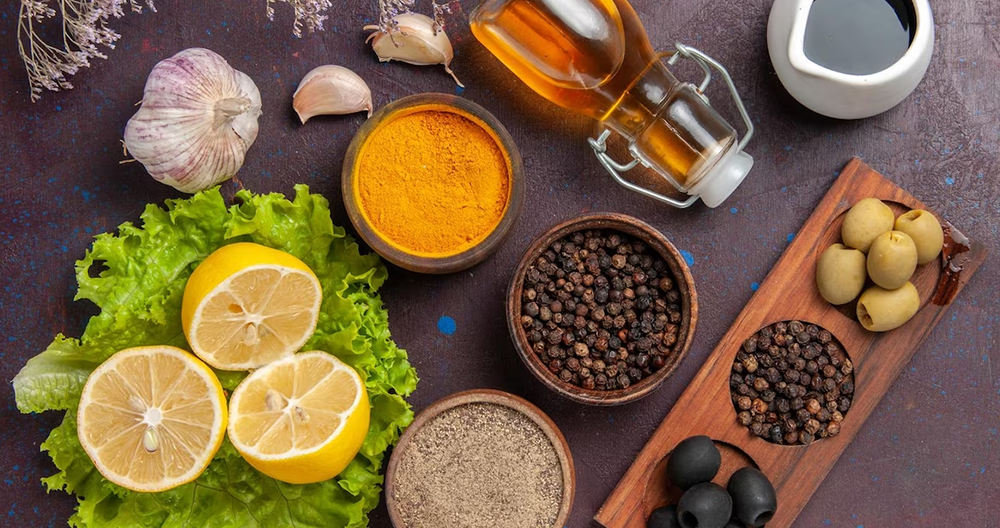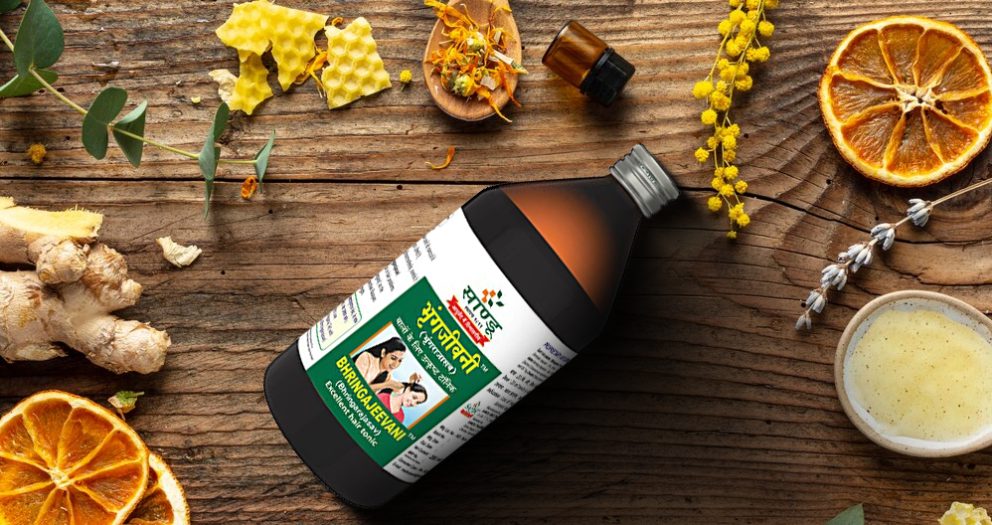As the seasons change, so does our susceptibility to colds and fevers. While over-the-counter medications offer relief, Ayurveda presents a treasure trove of natural remedies that can help alleviate symptoms and promote healing from within. Let’s explore some time-tested Ayurvedic home remedies that can provide comfort and relief during times of illness.
Ginger and Honey
First, extract fresh ginger juice and blend it with a tablespoon of honey. Ginger’s warming properties help balance the Kapha dosha which is linked to congestion and cold symptoms. Gingerol, an active compound in ginger, offers anti-inflammatory and antioxidant benefits. The sticky nature of honey forms a protective layer on the throat which provides relief from soreness and discomfort. The synergistic combination is believed to harmonize the doshas and provide relief from symptoms associated with colds,congestions and sore throats according to Ayurveda.
Herbal Concoction
Start by simmering freshly grated ginger which a pinch of pepper powder, cinnamon powder, and turmeric. Let this bubble for a minute before introducing a generous tablespoon of honey. It’s important to note that the honey should never undergo boiling, as this may compromise its medicinal properties. This aromatic concoction may aid in alleviating symptoms associated with colds, providing relief for sore throats, supporting digestion, and contributing to overall well-being.
Lemon Grass Tea
Harness the refreshing aroma and healing properties of lemongrass and Tulsi leaves by boiling them in water. After simmering for a couple of minutes, add a pinch of sugar for sweetness. This soothing tea helps relieve congestion and boosts immunity. Tulsi possesses potent analgesic properties for pain relief and exhibits antibacterial, antiviral, and antifungal qualities, safeguarding against numerous pathogens responsible for human disorders. Lemongrass on the other hand helps to manage an aggravated Kapha Dosha. It enhances digestive function which promotes toxin expulsion. However, excessive consumption of lemongrass may induce heartburn owing to its Ushna (warm) characteristics.
Adulsa Infusion
Adulsa is considered beneficial for pacifying Kapha dosha, which is associated with respiratory ailments and imbalances. The herb is believed to possess expectorant, bronchodilator, and anti-inflammatory properties, especially in the case of sore throats, pharyngitis and tonsillitis. Use the medicinal properties of Adulsa leaves by boiling them in water until the water changes colour. Strain the decoction and add a tablespoon of honey for sweetness. The resulting concoction will help alleviate coughs, relieve respiratory congestion, and support the body in addressing throat-related discomfort.
Steam Inhalation
Clear nasal passages and alleviate congestion by engaging in steam inhalation infused with Ajwain (carom seeds) and Bhimseni camphor. Begin by boiling water in a vessel and adding the Ajwain and Bhimseni camphor. Once its boiling and you can see steam, inhale the vapors. This process aids in the dilation of bronchial and nasal passages which enhances airflow and provides relief from nasal congestion. Steam inhalation inflused with Ajwain and Bhimseni camphor give a soothing effect. It loosens and expels out the mucus and provides refied from congestion inflammation.
Gargle
Mix turmeric, salt, and warm water to prepare a simple yet effective gargling solution. Turmeric has antibacterial properties which nhibits the growth of harmful bacteria in the throat.Gargling with this solution helps soothe a sore throat, reduces inflammation, and kills bacteria.
Embrace the healing power of Ayurveda with these natural remedies that offer relief from cold and fever symptoms while supporting your overall well-being. Incorporate these practices into your daily routine to stay healthy and resilient, naturally. Remember, while these remedies can provide relief, it’s essential to consult a healthcare professional for persistent or severe symptoms.







Write a comment
Your email address will not be published. All fields are required